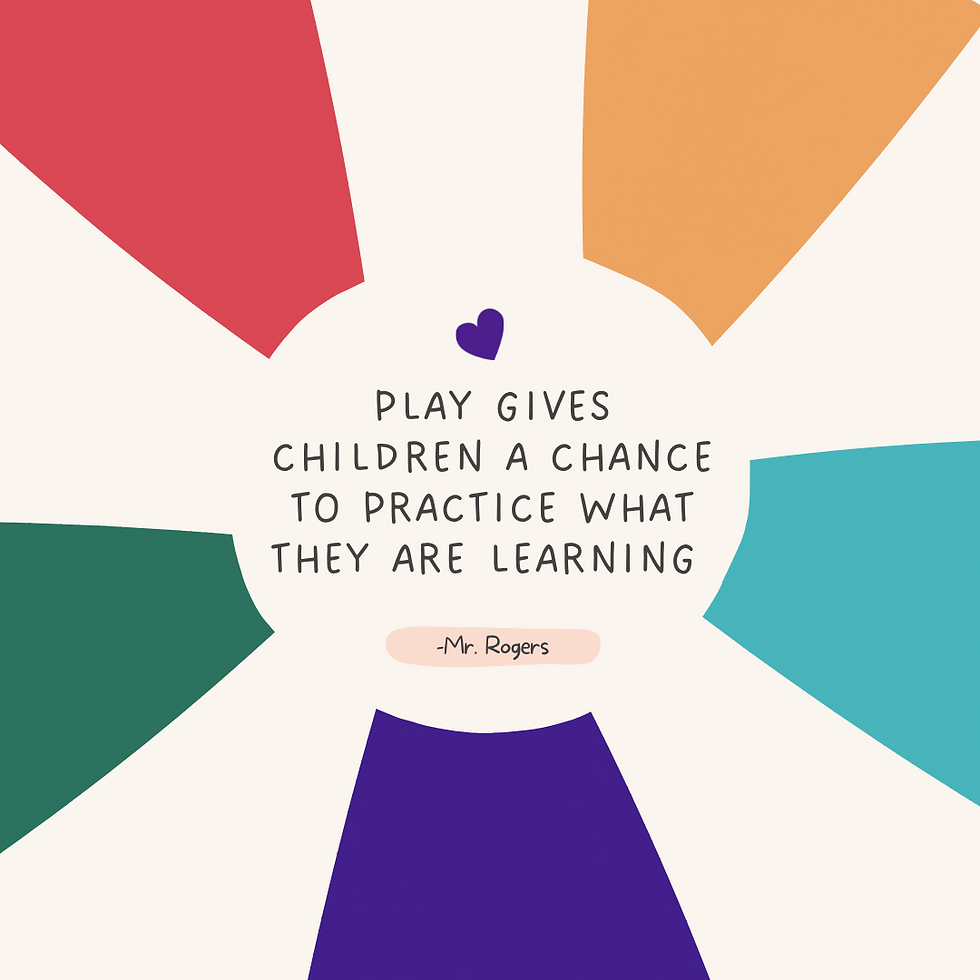Helping kids navigate medical experiences through play
- MaKaylie Peterkin, MS, CCLS

- Jun 21, 2022
- 2 min read
Healthcare experiences can be challenging for children of all ages. Encountering an unfamiliar environment with unfamiliar equipment and people can increase a child’s anxiety and fears surrounding their healthcare experience. It is important to allow children the opportunity to express their understanding of their experiences and their feelings surrounding these experiences through play.
Play is an essential tool to be utilized for children to work through their fears and anxieties. Play allows children to express themselves in a way that is familiar to them. Medical play in particular allows children the opportunity to express their feelings or anxieties regarding medical experiences.
Suggested Items to Use:
Medical play kits (doctor’s kits)
Stuffed animal or doll
Band-Aids
Cotton balls
Tape
Gauze
Syringes
Medicine cups
Masks
Gloves
Recommended Medical Play Activities by developmental age group:
Infant:
Allow your child to watch you play with medical equipment
Let your child explore and play with medical equipment. Let them feel it, smell it, utilize their senses to explore
Play peek-a-boo with medical gear such as masks
Toddler:
Use Band-Aids to create a piece of art
Read books related to healthcare experiences
Play peek-a-boo with medical gear
Play doctor with a doll or stuffed animal utilizing the above-mentioned medical gear
Preschool:
All activities listed above
Use syringes to create art
Read books about healthcare experiences
School-Aged:
All above-mentioned activities
Journaling or writing about medical experiences
Making art with medical supplies
Adolescent:
All the above-mentioned activities
Medical Bingo
To engage in medical play with your child, it is important to let your child take the lead while playing. Be involved with them while playing and allow them to tell you what is happening during this play session. Following your child’s lead and listening to what they are saying throughout the play session will help you as their parent understand how they may be processing their experience from a recent doctor’s appointment or other medical experience.
The medical play session may provide insight and information on misconceptions as well. If your child is saying that their teddy bear is a bad bear while engaging in medical play, it could be indicative that your child believes they were bad during their medical experience. Frustrated, angry, or aggressive feelings might surface throughout medical play. These feelings are an appropriate emotional response and should be allowed and supported.

Reach out to one of our child life specialists at Hearts Connected if you have more questions about medical play activities.














Comments